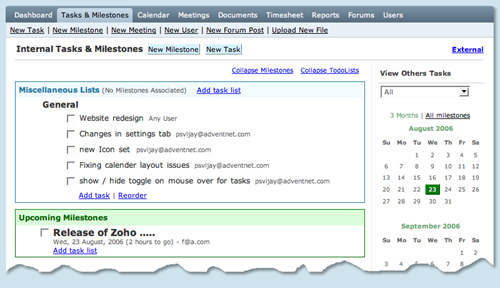Atlassian,the Sydney- and San Francisco-based software company, maker of enterprise wiki Confluence (and more) has just acquired a single sign-on solution company, Minneapolis-based Authentisoft. Single sign-on is something we all need whether behind a corporate firewall or on the Web. Without it, there are only bad and worse solutions:
- try to remember the myriad userid /password combinations we have for different systems – bad
- have some “algorithm” built in our passwords – bad
- write down all login info – really bad
- use the same userid / pw combo across all systems – really, really baaaad
I could go on… we need single sign-on. It’s that simple. I believe this make Atlassian the first “wiki-company” to offer 3 products in their portfolio. See Mike’s post on further plans.
Now, for the “sign-in” part: in an amazing coincidence, I was just reading the above announcement when I received the email from Cynapse, revealing their “flagship product”, cyn.in (pronounced “sign-in”). Yes, as in sign-in. In the very second I read the sign-on announcement. Isn’t this scary? 🙂
Anyway, cyn.in promises to be a web based service that enables the enterprise to build, collaborate, manage and publish: knowledge, documents, media and files, all within hosted sub-systems. It intends to apply the effectivity of Web 2.0 and the SaaS model, to deliver an information management, publishing and collaboration platform. Applications of cyn.in include Knowledge Management, Content Broadcast and Publishing, Collaborative Workspaces, Secure Online File Storage & Versioning, etc.
As I am reading it I can’t help but think those are the things I also do on a wiki … but I don’t think it’s a wiki… I don’t know what it really is though, at this point all you can do on the site is register for notifications and watch a a short tour.





 Yeah, right. Today the story continues, as
Yeah, right. Today the story continues, as 


 In an ironic coincidence on the very day
In an ironic coincidence on the very day 
Recent Comments